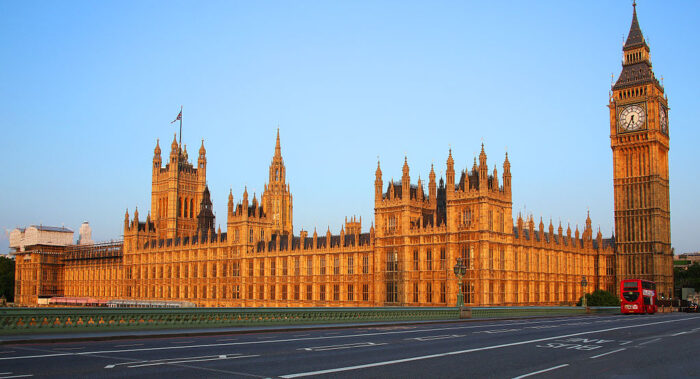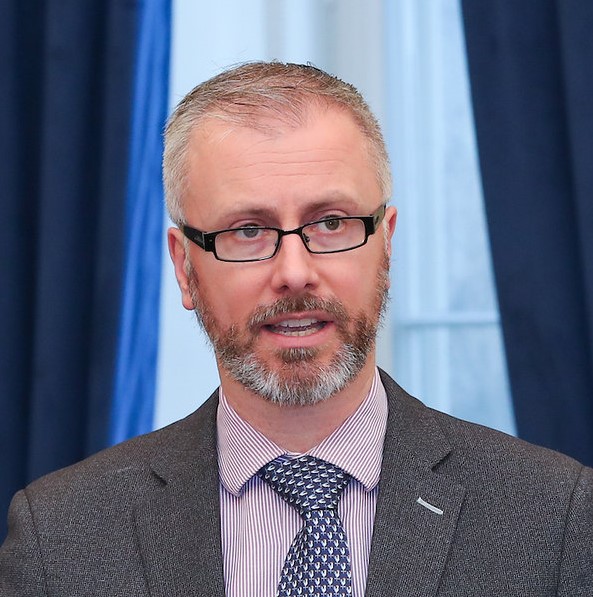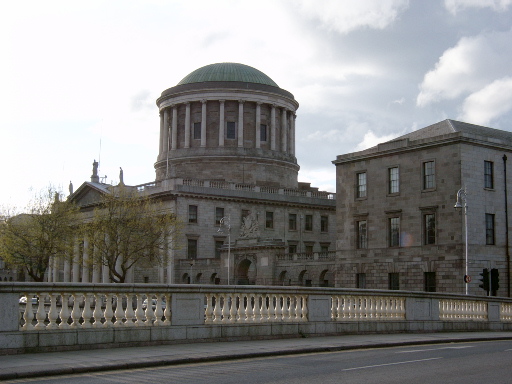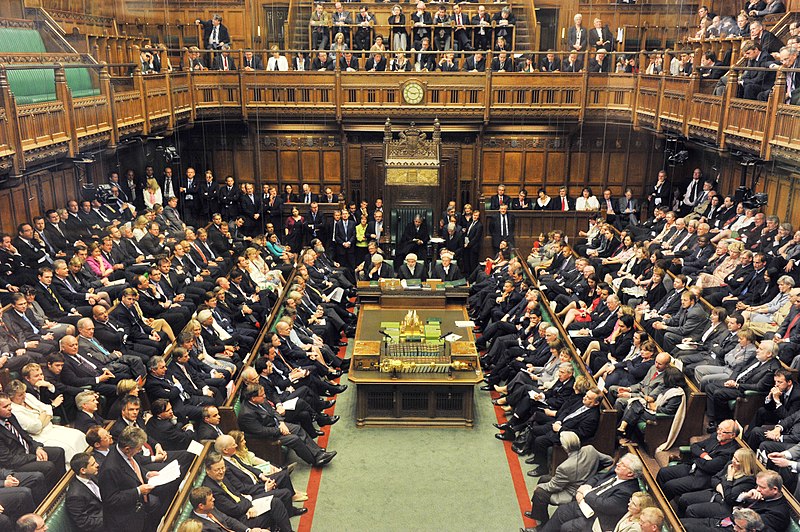
Heather Humphreys has overruled Green Party leader Roderic O’Gorman to ensure there will be no law change before the general election to allow those aged under 16 to legally change gender.
The Department of Social Protection, where Ms Humphreys is minister, and the Department of Children, Equality, Disability, Integration and Youth, where Mr O’Gorman is minister, jointly commissioned a report in November 2022 examining whether a radical gender-change law from 2015 could be extended to under-16s.
While Mr O’Gorman favoured the introduction of a process for children to legally change gender, there has been growing resistance from Fine Gael politicians following the Dr Hilary Cass report published in the UK in April.
Dr Cass found there was “remarkably weak evidence” supporting the case for medical transitioning of children and warned that there was no clear evidence of whether the social transitioning of children had positive or negative mental health outcomes.

Sir Keir Starmer has insisted MPs will be allowed vote their conscience if ‘assisted dying’ legislation comes before Parliament, but such a bill is not high on the agenda.
The prime minister said he would provide parliamentary time for a vote if a backbench MPs proposed changing the law, but stressed the government had other “priorities for the first year or so”.
Sir Keir supported a change in the law the last time the issue was voted on in the Commons nine years ago.
Speaking on a trip to the NATO summit in the US, the new prime minister indicated his support for taking up a bill eventually:
“That remains my position for the reasons I’ve set out, having probably got more experience on this than most people, having personally looked at tens of cases in my time as director of public prosecutions.”

Promised legislation to ban so-called ‘conversion therapy’ is unlikely to be enacted within the Government’s lifetime, which can only last until next spring at the outside, Minister for Children and Equality Roderic O’Gorman has said.
Last September, the Scottish government postponed a ban amid fears it could criminalise parents who question their child’s attempts to make their ‘gender’ different than their biological sex.
In Ireland, psychiatrist Dr Paul Moran of the HSE’s National Gender Service (NGS) said the proposed bill was unnecessary and could be weaponised against doctors working with patients suffering with gender dysphoria.
Likewise, Dr Karl Neff, also at the NGS said the research justifying the bill was weak, limited, and biased.
Speaking on Friday, Mr O’Gorman said he had hoped legislation outlawing the practice would be “more advanced” by now.
The Minister said aspects of it had proven to be “extremely complex” and he was continuing to engage with Attorney General Rossa Fanning on the matter.
The programme for government contains a commitment to legislate to end the practice of ‘conversion therapy’. But with an election having to happen by March, and many expecting one later this year, the law is unlikely to progress at this stage.

The UK’s new health secretary has said he will make permanent an emergency ban on the supply of puberty blockers to children.
The previous Conservative Government had rushed through the temporary ban just a day before parliament was dissolved, putting a stop to private clinics prescribing the drugs to under-18s.
Now, Labour’s Wes Streeting will keep the ban, as campaigners challenged the initial decision in the courts.
Government lawyers said that, subject to the outcome of the case, it was “minded to renew the emergency banning order with a view to converting it to a permanent ban, subject to appropriate consultation”.
Helen Joyce, director of advocacy for the charity Sex Matters, said: “Wes Streeting’s announcement that he plans to make his predecessor’s ban on puberty blockers permanent is an excellent sign that Labour intends to take an evidence-based approach to child gender medicine, and to prioritise child safeguarding.”

The Polish Parliament has rejected a bill that would have allowed abortion on demand for the first 12 weeks of pregnancy.
While the measure was supported by two parties of the governing coalition, the third joined with the opposition to vote against it.
Even some members of Prime Minister Donald Tusk’s own party abstained from the vote and have now been censured.
The vote tally was 215 in favour, 218 against, 2 abstentions, and 23 absentees.
Earlier this week, President Andrzej Duda, a conservative ally of the opposition PiS party, had declared that he would veto the bill even if it was passed by parliament.

A husband and wife have taken a High Court action seeking damages claiming their five embryos stored at a fertility clinic became contaminated and had to be destroyed.
The couple, who had opted for embryo freezing before the woman had chemotherapy for breast cancer, claim they have lost the chance to have children.
They have sued Human Assisted Reproduction Ireland Ltd, with registered offices at Merrion Square, Dublin. It was in 2019 trading as Rotunda IVF at the National Fertility Centre in the Rotunda Hospital, Dublin and is now located in Swords Business Campus in north Co Dublin.
On March 12th, 2019, the couple were told 17 eggs had been harvested, eight had matured and five had fertilised. Two days later, it is claimed, they were informed that a serious adverse event had occurred in the laboratory—the possible contamination from another unidentified sperm sample—rendering their five embryos unusable.

The UK has elected the most openly non-religious House of Commons in history, with roughly 40% of MPs during their swearing-in ceremony choosing to take the secular affirmation instead of a religious oath to God, up from 24% after the 2019 election.
The secular cohort include the Prime Minister, Sir Keir Starmer, who is an avowed atheist and 50% of the Cabinet.
The non-religious affirmation has been available since 1888 after a campaign by the atheist MP Charles Bradlaugh, who was previously prevented from taking his seat because of his refusal to swear to God, but whose constituents kept electing him in protest. Almost all MPs choosing it today do so because they are non-religious, although about a dozen are thought to choose it because their religious beliefs prohibit oaths.
Humanists UK said that the latest figures are a sign that ‘the UK is changing’ and that ‘with the country now majority non-religious, the fact that Parliament is gradually becoming more representative of society is a good thing.’

The global population is likely to peak earlier than expected and at a lower level, according to new UN projections.
However, despite warnings of a looming demographic crisis, a UN official has reacted positively, expressing hope that it will reduce pressure on the environment.
The analysis predicts there will be about 10.3 billion people by the mid-2080s, up from 8.2 billion this year.
The number is then expected to fall to about 10.2 billion by the end of the century, a figure 6% lower than was expected a decade ago.
Li Junhua, the UN undersecretary general for economic and social affairs, said: “In some countries, the birthrate is now even lower than previously anticipated, and we are also seeing slightly faster declines in some high-fertility regions.
“The earlier and lower peak is a hopeful sign. This could mean reduced environmental pressures from human impacts due to lower aggregate consumption.”

Local Church leaders have lambasted a court in Pakistan for passing the death sentence on a Christian man found guilty of ‘blasphemy’ in an incident that prompted one of the worst atrocities against minorities in the country’s history.
Bishop Samson Shukardin of Hyderabad, President of the Catholic Bishops’ Conference of Pakistan, described as “very, very painful” the judgement handed down in the case of Ehsan Shan.
The Sahiwal Anti-Terrorism Court found Mr Ehsan guilty of blasphemy by allegedly sharing content deemed insulting to Islam and Mohammed on social media.
Mr Shan, a man from Sahiwal in his early 20s, was not accused of desecrating the Qur’an but of reposting an image of the damaged sacred text. Reports of the defiled script triggered a day of violence last August against Christians in Jaranwala, Punjab province, where more than 25 churches were torched and more than 80 Christian homes ransacked. Sentenced under numerous articles of the Pakistan Penal Code, Mr Shan was also sentenced to 22 years’ “rigorous imprisonment” and fined 1 million Pakistan Rupees.

A futuristic suicide pod for ‘assisted dying’ has been banned by prosecutors in Switzerland weeks before it was set to be used for the first time.
Developed by Philip Nitschke, one of the founders of Exit International, whose Irish branch is led by Tom Curran, the ‘Sarco’ (short for sarcophagus), is a coffin-shaped machine that releases deadly nitrogen once activated from inside.
But now prosecutors in Switzerland’s Schaffhausen Canton have warned that anyone assisting someone to use the pods could face up to five years behind bars.
Public Prosecutor Peter Sticher warned of ‘serious consequences’ for Nitschke for ‘inducement and aiding and abetting suicide for selfish reasons’.
The ban followed after Nitschke revealed in an online forum on June 10 that Sarco’s deployment in Switzerland was expected ‘in the next few weeks.’